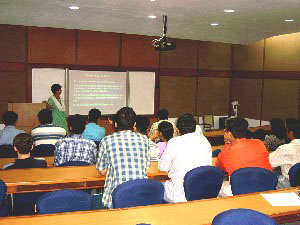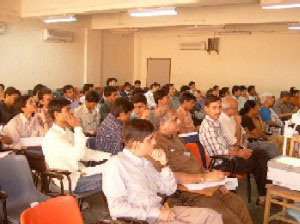CAREER OBJECTIVE
Microsys Technoware Solutions (P) Ltd. offers better career opportunities in various field like project analysis, project management, software development, database administration, report generation, web designing, tool development, e-server management, project maintenance, software marketing, consulting and entrepreneurship. Our learning system is developed in a manner so as to expose the students, faculties and developers to the real world information technology and be a part of the emerging globalized IT industry. Having an exposure to a good work culture in the beginning of their professional life guarantees success in all their endeavours. We have seen over the years that the students trained here are very well prepared to handle responsibilities and work with the most cutting-edge technology in the industry. This belief works as a driving force for us to try and ensure that our students get a jump start in their career. We provide our students with the best avenues to utilize their skills by helping them find gainful employment with the best of the engineering firms. |
||
Practical Training is a very important component of the curriculum meant for the students. As a part of the industrial training, arrangements are made for the students to undergo practical training during winter and summer vacations and utilize their talent in some real time projects. Sometimes students are allowed to directly to directly involve themselves in client side projects and attend meetings, seminars and conference. It is quite interesting to be burdened with a responsibility while at the same time learning to shape up a bright career for the future. IT complexity is growing fast in most jobs. Jobs that traditionally required few skills now demand an increasingly broad range of abilities. This reflects the requirement for broader skill sets and increased worker flexibility. Surviving as a worker today is all about managing extra responsibilities and an ever-increasing range of day-to-day duties. You'll discover your preferred way of working, your values and the type of roles you're best suited with our career guidance assessment tests. You can earn more, learn more, and go further in life by moving up the value chain –a broad term that represents the way in which your skills widen and deepen over time. In the workplace, you move up the value chain by acquiring and applying relevant new skills and knowledge and then using them to rapidly solve difficult problems.Taking the next step career-wise doesn't have to mean changing direction: it might do, of course, but equally you might be looking to secure a promotion in your current company, or even simply to expand your horizon. |
||
 |
 |
|
Our career support promotes traineeships with bodies, institutions and departments of the entrepreneurial world at the local, national and international level. This experience aims at providing a direct knowledge and a first significant step towards the labour field. The promotion of traineeships aims also at allowing our students become a precious human resource for international sectors. To supplement the higher education activities of the Corporate World in IT sector and to provide a practical application of the skills achieved during the academic year, we organize traineeships in organizations and companies, both at the national and international level. Our traineeships allow newly-graduates to get in contact with the professional world and to utilise the acquired knowledge in Community policies during the year of study. In order to help students explore the traineeship opportunities, at the end of the study programme, we offer to our students various tools and assistance to plan the first steps of the students' professional career and a rapid inclusion in the labour market. This activity is developed through three steps: |
||
|
||
| Career advice | ||
|
||
| What our experts say | ||
|
||
***** |
||